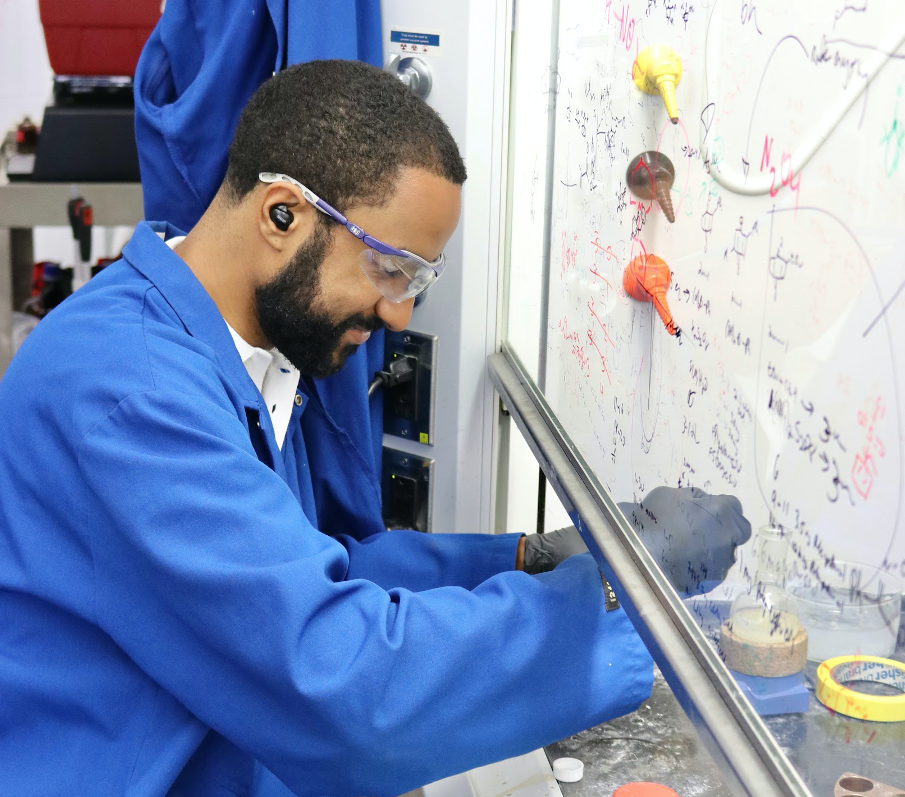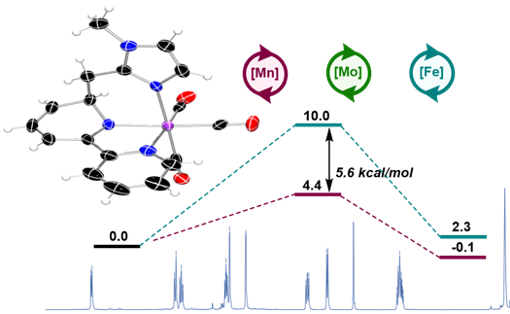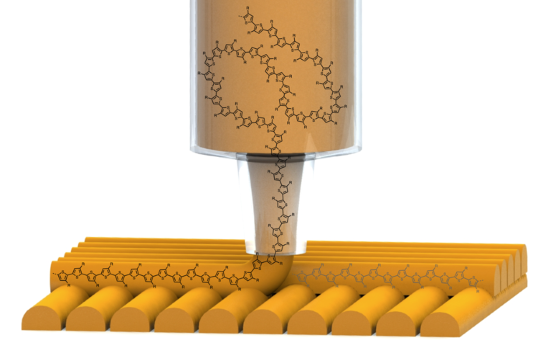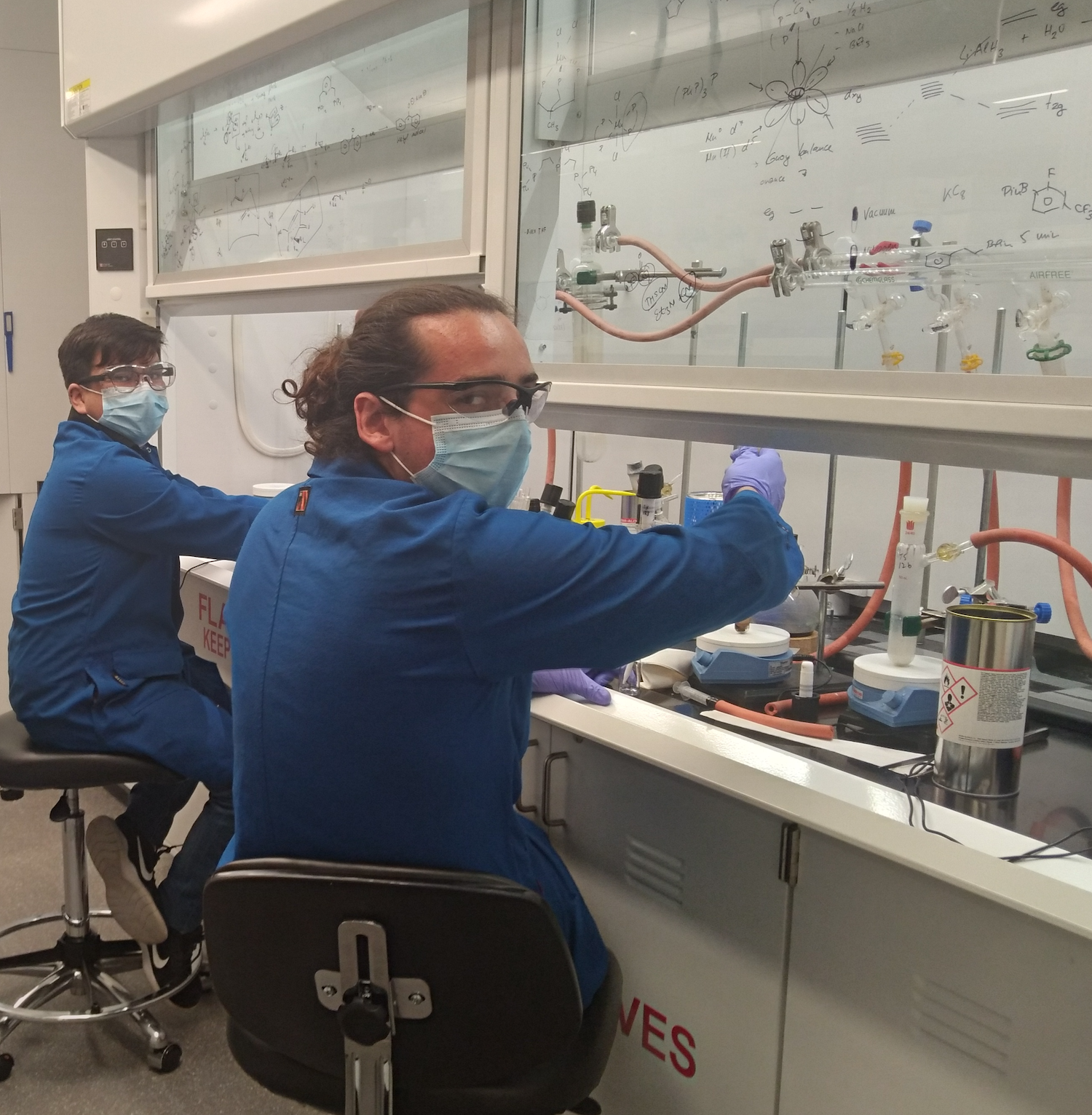 The Organic and Organometallic division at UC Merced has a strong background in physical organic chemistry, materials chemistry, and synthetic organometallic chemistry and catalysis that empowers the discovery and understanding of chemical reactions and the synthesis of new functional molecules combining organic and inorganic techniques.
The Organic and Organometallic division at UC Merced has a strong background in physical organic chemistry, materials chemistry, and synthetic organometallic chemistry and catalysis that empowers the discovery and understanding of chemical reactions and the synthesis of new functional molecules combining organic and inorganic techniques.
Ph.D. students choose from graduate classes in Advanced Organic Synthesis, Organic and Organometallic Reaction Mechanisms, Physical Organic Chemistry, Advanced Inorganic Chemistry, Organometallic and Coordination Chemistry.
Ryan Baxter’s group is developing new catalytic reactions starting from inexpensive feedstock chemicals. At the core of their research is the use of kinetic analysis to guide the development of metal-catalyzed single-electron transformation.
Rebeca Arevalo’s group focuses on developing new sustainable catalytic processes for the functionalization of inert bonds by rationally-guided catalyst design. The discovery of C-H functionalization processes employing Earth-abundant transition-metal complexes and the investigation of their mechanisms are among their main interests.

Michael Findlater’s group is active in a number of research areas: 1) Earth-abundant metal catalysis, 2) electrosynthesis and, 3) polymer chemistry. In each area, the application of well-defined organometallic species as catalysts, reaction kinetics and, reaction mechanism are studied.
Yue (Jessica) Wang’s group synthesizes organic metal and semiconductor systems that possess properties typically not associated with electronic materials, such as elasticity, self-healing capability, and biodegradability, while kee ping environmental sustainability in mind by practicing green chemistry for synthesis and additive manufacturing for processing.
ping environmental sustainability in mind by practicing green chemistry for synthesis and additive manufacturing for processing.




